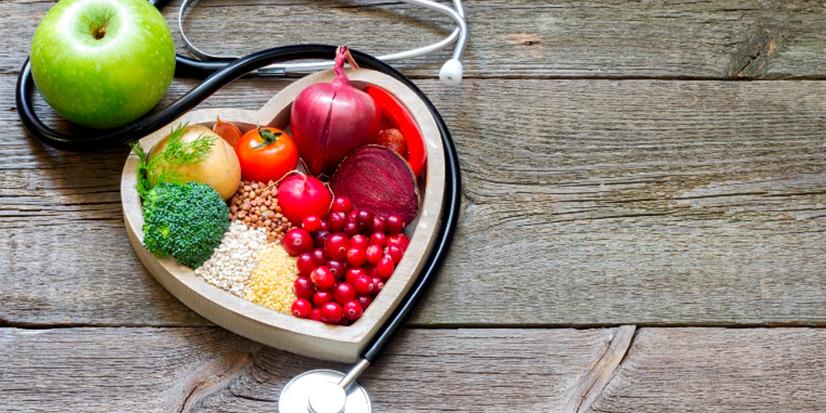Heart disease is the leading cause of death for men and women in the United States. Every year, one in four deaths is caused by heart disease.
The good news? Heart disease can often be prevented when people make healthy choices and manage their health conditions. One area that can make a big impact on heart health is food choices. Consider the following to help make heart-healthy eating a bit easier.
Eat More…
- Dietary fiber. Aim for 25-35 grams of fiber each day to help lower cholesterol. Choose whole-grain versions of bread, cereals, crackers, pasta, and other grains at least half of the time. Legumes like kidney beans, lentils, and split peas are another great way to add fiber. Choose grains, starches, fruits, and veggies that are less processed. (Try this dietitian-approved Winter Black Bean Soup.)
- Fruits and veggies. Whole foods like fruits and veggies are low in salt and high in fiber. To increase intake, choose fruits for dessert. Eat dark green and dark yellow vegetables every day. Eat at least one veggie serving at lunch and dinner. Snack on raw vegetables.
- Heart-healthy fats. Monounsaturated and polyunsaturated fats can protect the heart by lowering cholesterol. Keep in mind that all fats are high in calories, and portion control is still key. Cook with healthy fats like canola, olive, soybean, sunflower, and safflower oils. Include a handful of low salt nuts several times per week.
- Omega-3 fats. This type of fat helps prevent the clogging of arteries. Add flaxseed and walnuts to breakfast. Include fish with omega-3 like albacore tuna, salmon, and rainbow trout two to three times per week. Canola, soybean, flaxseed, and walnut oils are also sources of omega-3 fats.

Eat Less…
- Saturated fat. These fats increase the chances of heart disease and stroke by raising blood cholesterol and causing blood vessels to become clogged. To reduce saturated fat intake, eat less butter, whole milk, full-fat cheese, and bacon. Choose lower-fat cheese made with 2% or 1% milk. Use skim milk. Choose meats with less fat such as poultry without the skin, pork tenderloin, and 93% lean ground beef.
- Trans fat. Like saturated fat, trans fat can raise blood cholesterol and cause blood vessels to become clogged. Trans fat is often found in store-bought desserts and snack foods, as well as some stick margarine. Avoid food labels with trans fat listed. The words “hydrogenated oil” or “partially hydrogenated oil” on the label also indicate the presence of trans fat. Avoid these.
- Sodium. Salt in the diet can raise blood pressure. Elevated blood pressure can increase the chances of heart disease. Aim for no more than 2,300 mg of sodium per day. (Certain health conditions may require a lower sodium intake; follow your provider’s recommendation.) To help reduce salt intake, use less table salt, garlic salt, and onion salt when cooking. Season foods with herbs and spices instead. Use less processed food when cooking—from scratch is almost always lower in salt. Restaurant food is also often high in salt.
Incorporating these tips is a great way to promote heart health, and also supports blood sugar control, weight loss, and improved blood pressure.
Learn more about nutrition programs at Altru or be inspired by our Healthy Recipe Corner.







